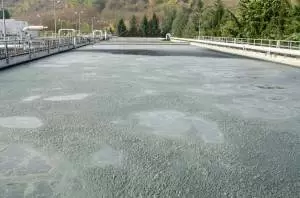
Environmental biotechnologists combine biology and engineering to develop sustainable solutions for environmental challenges. They earn a median salary of $80,060 nationally (2024 BLS), with experienced professionals reaching $134,830 annually. Most positions require at least a bachelor's degree, though research and senior roles typically need master's or doctoral credentials in environmental science, biotechnology, or related fields.
Environmental biotechnologists stand at the intersection of biology and environmental protection, developing innovative solutions to some of our most pressing ecological challenges. These professionals harness the power of living organisms, from microscopic bacteria to engineered plants, to clean contaminated sites, create sustainable fuels, and transform industrial processes. It's work that combines laboratory precision with real-world environmental impact.
The field has evolved significantly over the past two decades. Where environmental engineers design large-scale treatment systems and infrastructure, environmental biotechnologists work at the molecular and organism level. They identify specific microbes capable of consuming petroleum products, engineer enzymes to replace harmful industrial chemicals, and develop plant species optimized for extracting heavy metals from soil. This specialized focus on biological solutions makes the field distinct within the broader field of environmental science.
What Is Environmental Biotechnology?
Environmental biotechnology applies biological processes to solve environmental problems and create more sustainable systems. The field emerged from the recognition that nature has already developed sophisticated mechanisms for processing pollutants; we need to identify, optimize, and deploy them effectively.
At its core, environmental biotechnology involves three main approaches. First is bioremediation: using microorganisms, fungi, or plants to break down or absorb environmental contaminants. Second is bioenergy: converting organic materials into cleaner fuel sources through biological processes. Third is industrial biotechnology: replacing chemical-intensive manufacturing processes with enzyme-based or microbial alternatives that generate less pollution.
What makes this field particularly dynamic is its rapid evolution. Climate change, emerging contaminants such as microplastics and PFAS, and the push for circular economies are creating new opportunities for biological solutions. Environmental biotechnologists today work on challenges that didn't exist a decade ago, from engineering microbes for carbon capture to developing biodegradable plastics from agricultural waste.
What Does an Environmental Biotechnologist Do?
Environmental biotechnologists spend their days bridging laboratory research with practical environmental applications. A typical week might include collecting soil samples from a contaminated industrial site, culturing microbes in the lab to test their pollutant-consuming capabilities, analyzing data on remediation progress, and presenting findings to clients or regulatory agencies. The work requires both technical expertise and the ability to translate complex biological processes for non-scientific audiences.
Core Responsibilities
These professionals design and implement bioremediation strategies tailored to specific contamination scenarios. They might identify naturally occurring bacteria capable of breaking down petroleum products, then optimize conditions, nutrient levels, oxygen availability, and temperature to accelerate cleanup. For contaminated groundwater, they might design systems that direct polluted water through specially constructed wetlands, where plants and microbes work together to remove contaminants.
Beyond cleanup work, environmental biotechnologists develop sustainable alternatives to environmentally harmful processes. This includes creating biological enzymes to replace chlorine bleach in textile manufacturing, engineering microbes that convert agricultural waste into biogas for energy production, or developing plant-based bioplastics that decompose naturally rather than accumulating in landfills and oceans.GIS and Site Assessment
Modern environmental biotechnology relies heavily on geographic information systems to map contamination patterns and plan remediation strategies. Professionals use GIS mapping for contaminated sites to identify pollution distribution, model how contaminants move through soil and water, and determine optimal locations for deploying biological solutions. This spatial analysis helps predict remediation timelines and ensures resources are deployed where they'll be most effective.
Laboratory and Field Integration
The work alternates between controlled laboratory environments and outdoor field sites. In the lab, biotechnologists culture specific organisms, conduct experiments testing remediation effectiveness under various conditions, and analyze samples using techniques like DNA sequencing and mass spectrometry. Fieldwork involves site visits to assess contamination levels, oversee the implementation of bioremediation systems, collect samples for analysis, and monitor the performance of biological solutions under real-world conditions, including weather variations and complex oil chemistries.
Where Environmental Biotechnologists Work
The majority of environmental biotechnologists work in private industry, specifically for companies that provide bioremediation services or for environmental consulting firms with manufacturing-sector clients. These companies are called upon when industrial sites, former gas stations, or agricultural areas require biological treatment for contamination.
Employer Types and Settings
Bioremediation service companies employ biotechnologists to design and manage cleanup projects from initial assessment through completion. Environmental consulting firms hire these professionals to advise manufacturing clients on replacing chemical processes with biological alternatives or developing sustainable waste management systems. The biofuel and bioplastics industries employ biotechnologists in research and development roles, working to improve production efficiency and develop new bio-based materials.
Government agencies, particularly the U.S. Environmental Protection Agency and state environmental departments, employ biotechnologists for land management and restoration projects. These positions often involve policy work alongside technical duties, helping develop bioremediation regulations or evaluating the effectiveness of biological cleanup approaches across multiple sites.
Academic institutions employ biotechnologists as researchers and educators, conducting fundamental research into microbial capabilities while teaching the next generation of environmental scientists. University positions typically offer more autonomy in choosing research directions but may require securing grant funding and publishing regularly in scientific journals.
Work Schedule and Conditions
Standard work weeks are common, though active remediation projects may require extended hours for monitoring critical phases. Fieldwork exposes individuals to weather conditions and potentially contaminated environments, requiring adherence to safety protocols and the use of protective equipment. The work is generally not physically demanding beyond occasional sample collection and equipment transport, but it does require comfort working outdoors in various conditions.
The geographic distribution of jobs follows the patterns of industrial activity. Higher concentrations of positions exist along the East Coast, in California, and in Texas, regions with substantial manufacturing history and ongoing environmental restoration needs. However, contaminated sites exist nationwide, creating opportunities in most states.
Environmental Biotechnologist Salary & Compensation
Environmental biotechnologists fall under the Bureau of Labor Statistics category of Environmental Scientists and Specialists, which provides comprehensive salary data for career planning. Understanding how compensation varies by experience level helps you set realistic expectations as you enter and advance in the field.
National Salary Overview
As of May 2024, environmental biotechnologists earned a median annual salary of $80,060, with a mean salary of $88,640. The higher mean indicates that experienced professionals and those in specialized roles pull the average upward, reflecting strong earning potential as careers progress. These figures represent a notable increase from just four years earlier. Median salaries have risen approximately 9% since 2020, outpacing general inflation and reflecting growing demand for environmental remediation expertise.
Salary by Experience Level
Entry-level positions, typically technician roles that require a bachelor's degree, start around $50,130 (10th percentile). These positions involve conducting tests under supervision, maintaining lab equipment, and assisting with field sampling. With 3-5 years of experience and demonstrated competency, early-career professionals reach approximately $62,090 (25th percentile), often taking on more independent project responsibilities.
Mid-career biotechnologists with specialized expertise or advanced degrees earn a median salary of $80,060. These professionals typically lead projects independently, make technical decisions about remediation approaches, and supervise technicians. Senior biotechnologists and those in management positions earn $103,730 (75th percentile) and higher, with the most experienced professionals and those with unique specializations reaching $134,830 (90th percentile). These top earners often hold doctoral degrees, have 15+ years of experience, or possess rare expertise in emerging areas like PFAS remediation or carbon capture biotechnology.
Factors Influencing Compensation
Beyond experience, several factors affect earning potential. Employer type matters; private sector consulting and bioremediation firms typically pay more than government agencies or academic positions, though the latter often offer better benefits and job security. Geographic location creates variation, with positions in areas having high costs of living and strong environmental regulations (California, Massachusetts, New York) generally offering higher salaries than positions in lower-cost regions.
Specialization also impacts earnings. Biotechnologists with expertise in emerging contaminants such as microplastics or PFAS, or those skilled in both biotechnology and environmental engineering principles, command premium compensation. Advanced certifications, though not explicitly required for biotechnology roles, can demonstrate expertise and justify higher salaries.
Education Requirements for Environmental Biotechnologists
Educational pathways in environmental biotechnology have become more diverse as the field has grown. While advanced degrees were once mandatory, the rapid expansion of bioremediation and bioenergy industries has created opportunities for professionals with various educational backgrounds.
Bachelor's Degree Pathways
A bachelor's degree represents the minimum entry point, typically leading to technician positions. Most successful candidates hold degrees in environmental science with biotechnology coursework, biology with environmental focus, microbiology, or biochemistry. Pure environmental science programs may lack sufficient biological depth, while pure biology programs often need supplementation with coursework in environmental applications.
Students following this path benefit from programs offering hands-on laboratory experience with microbial cultures, molecular biology techniques, and field methods. Internships with environmental consulting firms or government agencies provide crucial practical experience that strengthens job applications. Many employers prioritize candidates who've worked with real contaminated sites over those with purely classroom knowledge.
Graduate Degree Options
Master's degrees open doors to research positions, project leadership roles, and specialized areas such as the genetic engineering of remediation organisms. Programs focused on environmental engineering with a biotechnology emphasis, ecology with a microbiology concentration, or dedicated environmental biotechnology degree programs provide the advanced training employers seek for these positions. Graduate education typically includes thesis research addressing real-world environmental challenges, building both expertise and professional networks.
Doctoral degrees are generally necessary only for academic positions, high-level research roles in industry or government, or for specialists working on cutting-edge problems, such as engineering novel organisms for new applications. The investment of 4-6 years in doctoral study makes sense primarily for those passionate about advancing fundamental science or those seeking to teach at the university level.
Essential Coursework and Skills
Regardless of degree level, specific courses form the foundation of biotechnology expertise. Microbial ecology teaches how microorganisms interact with their environment and with one another, which is crucial for understanding natural biodegradation processes. Soil microbiology covers the specific organisms and processes in soil systems where much remediation occurs. Biogeochemistry explains how biological, geological, and chemical processes interact, particularly how microbes mediate chemical transformations in environmental systems.
Molecular biology and genetic engineering courses become increasingly crucial as the field advances. Environmental biotechnologists today need to understand DNA sequencing to identify organisms present at sites, and many employers value knowledge of genetic modification techniques to optimize the performance of remediation organisms. Environmental chemistry provides essential background on the behavior and transformation of contaminants.
Beyond biology, mathematics, including calculus and statistics, is essential for experimental design and data analysis. Computer skills, particularly for modeling software and GIS applications, have become non-negotiable. Strong writing and communication abilities matter more than many students expect; professionals spend significant time writing reports, explaining findings to clients, and communicating with regulatory agencies.
Essential Skills for Environmental Biotechnology Success
Technical knowledge alone doesn't determine success in environmental biotechnology. We've found that the most effective professionals combine strong scientific fundamentals with practical skills that aren't always emphasized in academic programs.
Technical Competencies
Laboratory proficiency forms the baseline. This includes aseptic technique for working with microbial cultures, proper use of analytical equipment like spectrophotometers and chromatographs, and accurate documentation of procedures and results. Environmental sampling techniques, knowing how to collect representative soil, water, or air samples without contamination, are equally crucial since field samples drive all subsequent analysis.
Data analysis skills have grown increasingly important. Environmental biotechnologists need comfort with statistical software for experimental analysis, familiarity with modeling programs that predict remediation outcomes, and GIS competency for mapping contamination and planning treatment approaches. Many employers now expect basic programming knowledge, particularly Python or R for data processing and visualization.
Understanding regulatory frameworks shapes how work gets done. Professionals need familiarity with EPA regulations governing hazardous waste management, knowledge of how CERCLA and RCRA statutes affect remediation projects, and awareness of state-specific environmental regulations that may be more stringent than federal requirements. This knowledge helps design remediation approaches that satisfy legal requirements while remaining practical and cost-effective.
Soft Skills and Professional Abilities
Communication skills often set adequate professionals apart from exceptional ones. Environmental biotechnologists must translate complex microbial processes for clients without scientific backgrounds, write clear reports that non-experts can understand and act upon, and present findings to diverse audiences, including company executives, community members concerned about local contamination, and regulatory officials evaluating cleanup proposals.
Project management skills become crucial as careers advance. This includes realistic timeline estimation (biological processes don't always cooperate with schedules), budget development and tracking, coordination with other environmental professionals and contractors, and documentation that satisfies both scientific rigor and legal requirements.
Adaptability and problem-solving matter enormously. Field conditions rarely match laboratory predictions-unexpected soil chemistry, weather impacts, or presence of additional contaminants require quick thinking and alternative approaches. The best biotechnologists view setbacks as opportunities to refine their understanding rather than failures, maintaining curiosity about why biological systems behave unexpectedly.
Career Pathway and Advancement in Environmental Biotechnology
Understanding typical career progression helps set realistic expectations and identify what skills or credentials to develop for advancement. While individual paths vary, specific patterns emerge across the field.
Entry-Level Positions
Most careers begin as biotechnology technicians or junior environmental scientists. These roles involve conducting laboratory tests following established protocols, assisting senior scientists with field sampling, maintaining equipment and supply inventories, and documenting results in accordance with quality assurance procedures. Entry-level professionals typically work under close supervision, gradually gaining autonomy as competency develops.
This phase, usually lasting 2-3 years, provides essential exposure to real-world applications. New professionals learn how theoretical knowledge translates to practical challenges, develop professional networks, and identify which specializations interest them. Many use this time to pursue graduate education part-time, gaining practical experience while advancing credentials.
Mid-Career Progression
With 5-8 years of experience and often a master's degree, professionals advance to project scientist or biotechnology specialist positions. These roles involve independent project leadership, designing remediation approaches for specific sites, making technical decisions about treatment methods, managing small project teams, and serving as primary client contacts. Compensation typically reaches or exceeds the median salary at this stage.
Mid-career professionals often develop specializations, perhaps focusing on petroleum hydrocarbon remediation, becoming experts in emerging contaminants like PFAS, or specializing in industrial biotechnology applications. This specialization increases market value and can lead to consulting opportunities or positions with firms seeking specific expertise. Many professionals find that their reputation and network of contacts become as valuable as formal credentials during this phase.
Senior and Leadership Roles
Senior biotechnologists, typically with 10+ years of experience and often doctoral degrees, may lead research programs, manage multiple large-scale projects, or direct entire departments. Some transition into business development, using their technical expertise to identify opportunities and secure contracts. Others move toward regulatory roles with government agencies, shaping environmental policy based on their understanding of what biological treatment approaches actually accomplish.
Alternative paths include academic positions, consulting independence, or pivoting into related fields like environmental law or policy, where scientific expertise provides a foundation for different applications. The interdisciplinary nature of environmental biotechnology creates unexpected opportunities; professionals have leveraged their expertise into roles in sustainable agriculture, pharmaceutical waste management, and even food science.
Job Outlook and Growth Projections
The Bureau of Labor Statistics projects 6% employment growth for environmental scientists and specialists, including biotechnologists, from 2022 to 2032. This translates to approximately 6,900 annual job openings nationwide, with employment growing from 80,500 positions in 2022 to an estimated 85,300 by 2032.
While 6% represents moderate growth compared to some technology fields, the projection reflects several positive factors for environmental biotechnology specifically. Growing awareness of sustainable practices is driving demand for biological alternatives to chemical processes in manufacturing. Stricter regulations on PFAS and other emerging contaminants create a need for innovative treatment approaches that biotechnology can address. Climate change adaptation and mitigation efforts increasingly rely on biological solutions, from carbon capture to drought-resistant crop development.
The bioenergy sector continues to expand as renewable energy mandates increase and technologies for converting waste materials into fuel improve. Bioplastics and other bio-based materials are gaining market share as companies respond to consumer demand and concerns about plastic pollution. Each of these trends creates opportunities specifically suited to environmental biotechnology expertise.
Geographic variations in growth exist, with states with strong environmental regulations and substantial cleanup needs (California, New York, New Jersey, Texas) likely to see above-average growth. However, every state has legacy contamination and ongoing environmental challenges, preventing the geographic concentration seen in some technology fields.
Professional Organizations and Networking
Professional associations provide continuing education, networking opportunities, and advocacy for the field. Active participation helps professionals stay current with evolving technologies and regulations while building the professional relationships that often lead to career opportunities.
International Society for Environmental Biotechnology (ISEB)
The International Society for Environmental Biotechnology serves as the primary global organization that facilitates the development and promotion of the profession. It functions mainly as an umbrella organization for regional and national chapters, providing coordination and shared resources. ISEB holds an international symposium every two years, bringing together researchers and practitioners to share advances in bioremediation, bioenergy, and industrial biotechnology applications. The organization maintains a valuable membership directory for professional networking and publishes a newsletter highlighting recent developments and opportunities in the field.
Battelle Bioremediation Symposium
The Battelle Bioremediation Symposium serves as the premier international conference for bioremediation professionals, bringing together researchers, practitioners, and industry leaders every two years. Hosted by the Battelle Memorial Institute, the symposium provides a platform for sharing cutting-edge research on biological treatment technologies, innovative field applications, and emerging solutions for contaminants. Attendees gain access to technical sessions covering recent advances in phytoremediation, microbial degradation processes, and regulatory developments affecting bioremediation practices. The conference facilitates networking between academic researchers developing new biological approaches and industry professionals implementing remediation projects, making it valuable for both career development and staying current with evolving technologies in environmental biotechnology.
Frequently Asked Questions
What's the difference between an environmental biotechnologist and an environmental engineer?
Environmental biotechnologists focus specifically on biological solutions, using microbes, fungi, plants, and enzymes to solve environmental problems at the molecular and organismal level. Environmental engineers take a broader approach, designing large-scale systems and infrastructure for pollution control, water treatment, and waste management. Biotechnologists work with living systems to break down contaminants or create sustainable materials, while engineers design facilities, treatment plants, and mechanical systems. The fields often collaborate, with biotechnologists developing biological treatment methods that engineers then incorporate into larger remediation systems.
Can I become an environmental biotechnologist with just a bachelor's degree?
Yes, bachelor's degree holders typically start as biotechnology technicians, conducting laboratory tests, maintaining equipment, collecting samples, and supporting research projects under supervision. These positions provide valuable experience and reasonable starting salaries of around $50,000-$62,000, depending on location and employer. However, independent research roles, project leadership, and work on cutting-edge applications usually require master's or doctoral degrees. Many professionals begin as technicians and pursue graduate education while working, gaining practical experience while advancing credentials. This path often proves more valuable than completing graduate degrees without professional experience.
What industries and employers hire environmental biotechnologists?
Primary employers include environmental consulting firms that conduct site assessments and design remediation plans for clients. These bioremediation service companies implement and manage cleanup projects, and biofuel or bioplastics manufacturers work to improve production efficiency. Government agencies, particularly the EPA and state environmental departments, employ biotechnologists for land management and restoration projects. Universities hire these professionals for research and teaching positions. The manufacturing sector increasingly employs biotechnologists to develop cleaner industrial processes that replace chemical methods with biological alternatives. Water and wastewater treatment facilities also hire biotechnologists to optimize biological treatment systems.
Is fieldwork required, or is this purely a laboratory job?
Most environmental biotechnology positions involve both field and laboratory work in varying proportions. Fieldwork includes site visits to assess contaminated areas, collect soil and water samples, oversee implementation of bioremediation systems, and monitor treatment progress. Laboratory work involves culturing and identifying microorganisms, testing remediation effectiveness under controlled conditions, analyzing samples for contaminant levels, and developing improved biological solutions. The balance depends on your specific role and employer-consulting firms often require more fieldwork for client sites, while biofuel companies or academic research positions may emphasize laboratory work. Pure laboratory positions exist, but they are less common than roles that combine both environments.
How does climate change impact environmental biotechnology careers?
Climate change is significantly expanding career opportunities. Growing needs include developing drought-resistant and heat-tolerant crops through biotechnology, creating climate-resilient biofuel production systems that function under varying conditions, engineering microbes for carbon capture and storage applications, and remediating sites affected by extreme weather events that expose or spread contamination. Changing temperature and precipitation patterns are altering how existing bioremediation approaches work, creating demand for professionals who can adapt biological solutions to new conditions. The field is increasingly focused on climate change mitigation and adaptation, making it more relevant and creating new specializations that didn't exist even five years ago.
Key Takeaways
- Competitive Salaries: Environmental biotechnologists earn a median annual salary of $80,060 (2024 BLS), with experienced professionals and specialists earning up to $134,830, reflecting strong earning potential as expertise develops.
- Steady Job Growth: The field projects 6% employment growth through 2032, creating approximately 6,900 annual job openings as environmental remediation needs expand and bioenergy applications mature.
- Diverse Applications: Career opportunities span bioremediation of contaminated sites, development of biofuels and bioplastics, industrial process optimization, and emerging areas such as carbon capture and PFAS treatment.
- Educational Flexibility: Bachelor's degrees open technician roles with good entry salaries, while master's and doctoral degrees unlock research positions, project leadership, and specialized work on cutting-edge environmental challenges.
- Interdisciplinary Skills Required: Success demands more than biological knowledge; professionals need GIS proficiency, data analysis capabilities, regulatory understanding, and strong communication skills to translate technical concepts to diverse audiences.
Ready to explore environmental biotechnology programs? Find accredited degree programs that align with your career goals in this growing field, combining biological innovation with environmental protection.
2024 US Bureau of Labor Statistics salary and job growth figures for Environmental Scientists and Specialists reflect state and national data, not school-specific information. Conditions in your area may vary. Data accessed January 2026.






